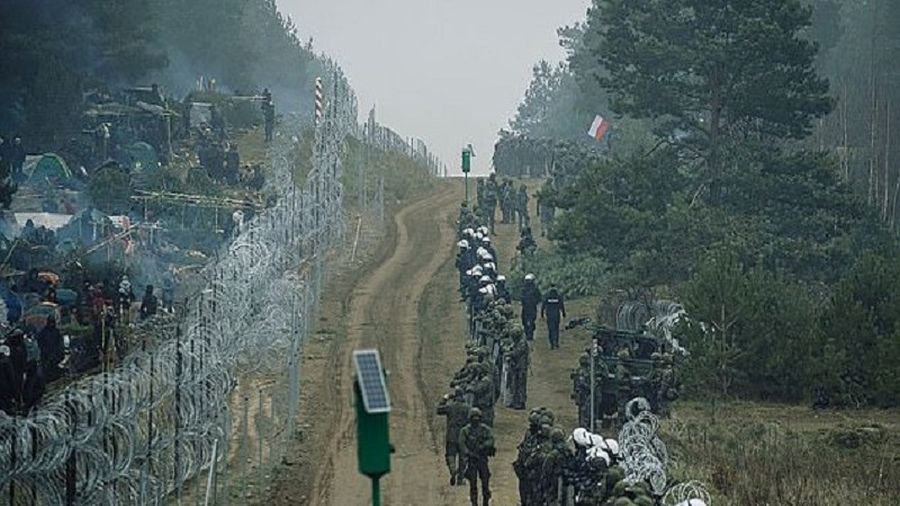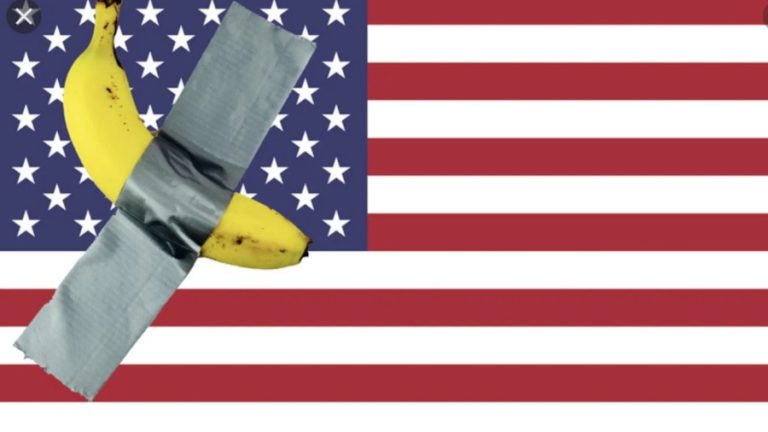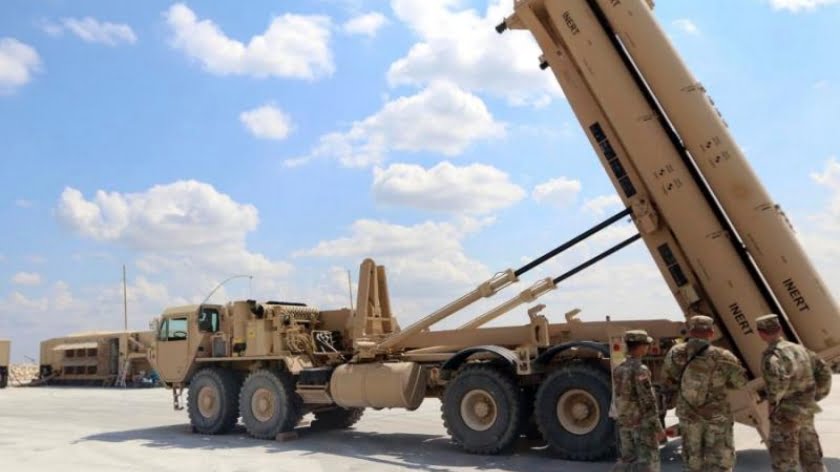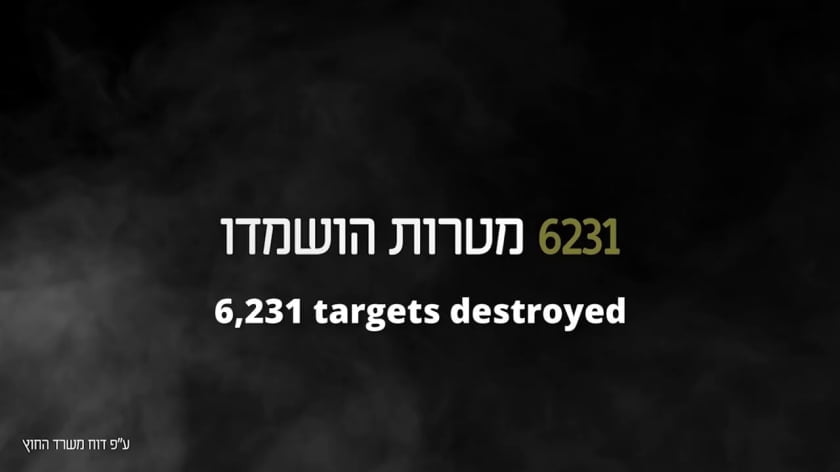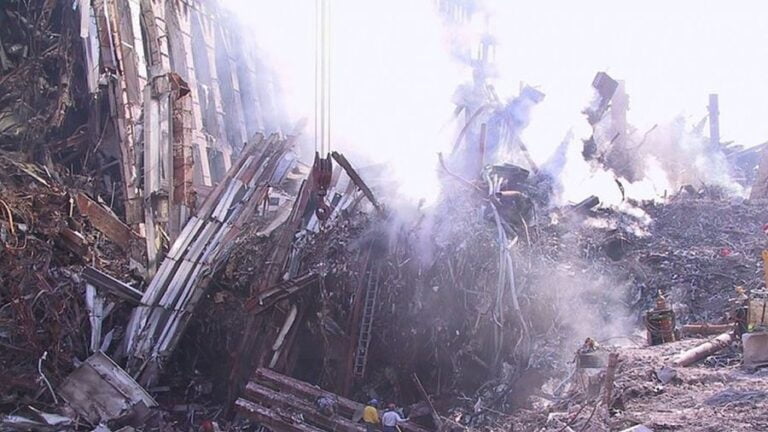A Reminder of Russia’s Skeptical Stance Towards Refugees in Light of Recent Events
Those who criticize Poland’s expression of state sovereignty in defending its borders from terrorist-connected migrant/refugee threats should in the interests of consistency also criticize Russia’s near-identical policy when it comes to preemptively defending itself from the same threats posed by Afghan ones.
The True Roots Of The Latest Migrant Crisis
The Eastern European Migrant Crisis has brought the issue of illegal immigration and refugees back to the forefront of the global discourse. The crisis’ origins lie in the US-led West’s wars of the past two decades that destroyed Muslim countries and created the conditions to prompt large-scale exoduses from them, including for economic reasons. The Polish-led Western sanctions against Belarus crippled that transit country’s capabilities to protect the EU from such threats. They also made it politically impossible for its leadership to continue expending such resources for that end after the neighboring countries actively began to support regime change against him. In addition, the resultant crisis is being exploited by the Polish government for political and strategic reasons despite Warsaw having the right to protect its innocent people from the threats posed to them by this illegal immigrant invasion.
Russia’s Response To Recent Provocations
Russia has been accused by Poland, the Baltic States, and their allies of supposedly having a secret hand in provoking the latest events due to its status as Belarus’ CSTO, Eurasian Union, and “Union State” ally. Moscow has denied these claims, including the speculation that it approved Belarusian President Lukashenko’s recent threat to cut off Russian gas supplies to the EU. About that, Russian President Putin promptly warned his counterpart against such a move, which can be interpreted as him chiding Lukashenko for irresponsibly escalating the crisis through such means and thus inadvertently fueling the West’s political Russophobia. At the same time, however, the Kremlin has also been very critical of the Polish government for pushing back those economic migrants who violently tried to storm the border. Russia also believes that Poland’s banning of journalists from the border contradicts Western values.
Confusion About The Kremlin’s True Position
The latest developments in the long-running rivalry between Russia and Poland have drawn renewed attention to Moscow’s position in this crisis, particularly its official attitude towards illegal immigrants and refugees. The perception that’s emerging among some in the Alt-Media Community (AMC), which is generally sympathetic towards the Russian worldview (or at least what they imagine it to be), is that the Eurasian Great Power has a surprisingly liberal attitude towards these issues. That’s not the case as confirmed by Russia’s skeptical stance towards Afghan refugees as articulated by its President and Foreign Minister just a few months ago. It’s crucial to remind observers of its pertinent policy in order to challenge the assumption that Russia has either suddenly changed its position without explanation or might even be manipulating perceptions surrounding this issue for strategic gain vis-à-vis Poland.
Putin’s 2012 Ethnicity-Migration Manifesto
For starters, then-Prime Minister Putin published a detailed manifesto on ethnicity and migration in 2012 when running for re-election as his country’s president. It deserves to be read in full by anyone sincerely interested in learning about Russia’s official position. Although the following summary doesn’t do the depth of his ideas justice, Russia’s policy basically boils down to wanting to responsibly control immigration flows and ensure that all new arrivals successfully assimilate and integrate into its society. Regrettably, the “Overton Window” has shifted so radically since then that such a position is maliciously misportrayed as “racist”, “fascist”, “white supremacist”, and/or “Islamophobic” among many in the liberal-dominated West nowadays despite being the embodiment of pragmatism and continuance of state traditions. This is especially the case whenever a Western state or activist supports such views.
“Wolves In Sheep’s Clothing” (Or Terrorists Disguised As Refugees)
The most recent reaffirmation of President Putin’s views towards this very sensitive issue came in late August after the Taliban’s takeover of Afghanistan. He met with members of the ruling United Russia party on 22 August, during which time he spoke about this topic. The author of the present article was unable to find the official transcript from the Kremlin website so is pairing two of TASS’ reports below to present the pertinent comments that were attributed to him:
“Our Western, let’s say, partners are persistently raising the issue of placing refugees in Central Asian countries before those receive visas from the United States or other countries. They think they can send them without visas to our neighbors [Central Asian states], but refuse to receive them in their own countries without visas? What a humiliating approach to solving this issue is it?
They are in one way or another our closest partners and allies. We share common borders, but there are no visa restrictions. Imagine that refugees entered any of these countries. Who is among these refugees, how do we know? There may be thousands of them, or even hundreds of thousands, and maybe even millions. But we and our closest allies do not even have any visa restrictions. And what about our [common] border? It is thousands of kilometers [long]! One can get a car or even ride a donkey, and can go across the steppe. What are we going to do about it?
“We don’t want militants under the disguise of refugees to appear here [in Russia] again. We will do everything, in particular in contact with our Western partners, to ensure stability in Afghanistan as well. But we do not want us to at least somehow repeat the situation of the 1990s and early 2000s. At that time, we were actually fighting in the North Caucasus. These horrors we see on the territory of Afghanistan now, we saw on our territory not so long ago.”
Two days later on 24 August at the 20th United Russia party congress, the official Kremlin website reported that President Putin said the following words of relevance:
“You know about how complicated and alarming the situation in Afghanistan is today. We are closely monitoring the developments and actively interacting with our CSTO allies. Obviously, we are not going to interfere in Afghanistan’s internal affairs, and we are even less likely to engage our army in an all-against-all conflict, which I think is unfolding there, a conflict that has been ongoing in that country for several decades.
The USSR had its experience in that country. We have learned the right lessons. I can say that we have effective capabilities to ensure our security and, first of all, to reliably safeguard Russia and our citizens from the threat of international terrorism. Regrettably, this threat persists, we must be aware of it and exert maximum responsibility about it.
Some may think that such threats are a thing of the past, that they happened a long time ago and not in our country. Let me remind you: it happened not so long ago, and it happened exactly in our country. In fact, we fought a war against large gangs of international terrorists in the North Caucasus, and had we not destroyed them, had we not given them a united pushback, had not residents of Daghestan, Chechnya and other republics risen to fight that evil, the horrors that Afghanistan is going through today would have continued on our soil, too.
Russia is practically the only country that managed to destroy large terrorist units and eliminate underground terrorists. Our great appreciation goes to the men who did it, including those who paid for it with their lives.
However, let me reiterate: there is a danger that terrorists and different kinds of groups that found a refuge in Afghanistan will use the chaos left behind in that country by our Western colleagues and will try to launch a direct escalation in adjoining countries. And this will pose an immediate threat to our country and our allies, as well as a possible surge in drug trafficking and escalating illegal migration. They are all threats for us, and they are absolutely real.
In this situation all of us – Russian society and citizens – must become ever more united. Well-coordinated actions by all government bodies are of the utmost importance.”
From the above, Russia’s position towards Afghan refugees is a very skeptical one driven by security considerations. President Putin suspects that terrorists might try to infiltrate his country’s Central Asian allies and thenceforth exploit their visa-free travel privileges with Russia. He’s also very concerned about the potentially destabilizing impact of an uncontrollable influx of such persons on the host states. In response to these credible threats, he preached the need for national unity and coordinated actions.
Lavrov’s Reaffirmation of Putin’s Position
Foreign Minister Lavrov also spoke about this issue on several occasions, most recently at the beginning of November. He predictably reflected President Putin’s position, which is Russia’s official stance. Here’s what TASS reported him as saying during that time:
“They were asked to do that only for some time, until the West issued the necessary papers for their immigration to the Western countries. Thank God none [of the Central Asian countries] agreed to follow this path, at least, to the degree the West was talking about. If you cooperated with the Afghans on the ground for a rather long time and hired them in the capacity of interpreters and informers, then you must have checked their backgrounds, right? And if you are still unable to understand, after they worked for you long enough, whether they are trustworthy or not, then why do you abandon them in the central Asian countries, which are our allies? The subject is not closed yet.
Many spontaneously flocked into Central Asia. Attitudes to them vary. These countries have been trying to protect themselves from these flows. Uzbekistan has created special facilities near the airport, from where they are redirected to other countries, but not allowed into other areas of Uzbekistan. [Tajikistan is] being pestered with requests for accommodating refugees, too. They wish to create accommodation facilities on the condition there are firm guarantees these refugees will be taken away after sometime.”
Russia’s top diplomat reaffirmed his country’s skeptical stance towards Afghan refugees, expressing concern that even those who’ve previously been vetted by the US for years might secretly be terrorists. He also said that his allies are hosting some refugees on the condition that they eventually leave.
Summarizing Russia’s Stance
Upon reflecting on the positions elaborated by Russia’s top representatives, President Putin and Foreign Minister Lavrov, it’s self-evident that Russia’s stance towards Afghan refugees is in full alignment with its leader’s 2012 ethnicity-migration manifesto. Moscow dutifully follows international law but is also absolutely uncompromising when it comes to the issue of state sovereignty. Credible security threats such as those posed by refugees, including those who’ve been vetted for years by the US, cannot responsibly be ignored by the authorities due to their experience of having suffered tremendously from neglecting these concerns during the 1990s and early 2000s.
Something else that’s very important to pay attention to is how Foreign Minister Lavrov explained that Russia’s Central Asian allies don’t intend to permanently accept the limited number of Afghan refugees that they’re already hosting. According to him, Uzbekistan is housing them in special areas and won’t allow them to freely travel throughout the country. They’re only being temporarily taken care of ahead of “redirecting” them to other countries. As for Tajikistan, it might follow its neighbor’s lead, but only “on the condition there are firm guarantees these refugees will be taken away after sometime.” This aligns with President Putin’s skeptical stance and is fully supported by the Russian Foreign Minister.
It should also be pointed out that Russia, just like Poland and all other countries in the world, has sensitive border regions and other places throughout its territory where the free movement of people is prohibited. Foreigners caught in these places will be detained for questioning due to understandable counterintelligence concerns and at the very least fined just like RT France’s team, which was recently apprehended by the Polish authorities for violating the state of emergency’s banning of people from the Belarusian border after they repeatedly refused to comply with the military’s orders to leave. Foreign Minister Lavrov’s criticism of that incident deserves to be clarified since it confused some observers.
Russia’s top diplomat wasn’t implying that his own country doesn’t practice such a policy as Poland does since Moscow stands in principled support of state sovereignty like was earlier explained. His words should therefore be interpreted as merely signaling the EU’s double standards concerning the freedoms of movement and press, which they’ve weaponized as part of their infowar attacks against Russia. It was also expected that he’d support his publicly financed media champion’s employees, which is natural for any Foreign Minister to do in those circumstances after such a scandalous incident. Those observers who believe that he unexpectedly and inexplicitly reversed relevant Russian policies are mistaken.
Explaining Poland’s Position
Having clarified Russia’s official stance towards these sensitive issues, particularly the Eastern European Migrant Crisis, it’s now time to explain Poland’s position. Curiously enough, despite the ruling “Law & Justice” (PiS per its Polish abbreviation) party being among the most politically Russophobic forces in the world, its officials actually practice a relevant policy that’s almost identical to Moscow’s. They too strongly support the principle of state sovereignty and are extremely concerned about the security threats that illegal immigrants and refugees pose, especially those who are undocumented and thus incapable of being thoroughly vetted.
Just like Russia feels uncomfortable about the presence of such people in the nearby transit states of Central Asia, so too does Poland feel the same about them in neighboring Belarus from where they’re violently trying to storm its border on a daily basis. Poland doesn’t want to accommodate such individuals and would prefer for them to travel elsewhere, which is the exact same position as Russia’s Central Asian allies have towards Afghan refugees. It should be remembered that Moscow supports those countries’ stance so it follows that it presumably has tacit sympathy for Warsaw’s too despite seeing a benefit in pointing out how the latter EU member’s policy contradicts that bloc’s official values.
Some critics have accused Poland of “overreacting” to what they claim is the “insignificant” presence of “only” several thousand illegal immigrants on its border. Bearing in mind President Putin and Foreign Minister Lavrov’s very clearly articulated concerns about the security threats that refugees could pose, especially those from Afghanistan, Poland shouldn’t be described in such a way without saying the same about Russia. Lukashenko ominously warned just last week that more migrants could be expected to come into his country from Afghanistan soon, which implies that these same terrorist-connected refugee threats that Russia is so worried about might also imminently endanger Poland.
Clarifying Russia’s Criticisms Of Poland
Considering all of this, Russia’s criticisms of Poland’s position deserve to be clarified because they’re at risk of being misportrayed by the AMC in a manner that implies hypocrisy on Moscow’s part for self-interested and strategically convenient reasons. Russia doesn’t criticize Poland’s legitimate exercise of state sovereignty in defending its borders from what it sincerely considers to be the threat posed by these illegal immigrants per se since it also practices the same policy as was earlier proven for the exact same security-related reasons. The Kremlin seems to be solely interested in pointing out the EU’s hypocrisy when it comes to its democracy, human rights, and the bloc’s earlier pro-migrant rhetoric.
Russia also saw a prime opportunity to remind the world of the role that the US-led West, including Poland, played in the destruction of the majority-Muslim countries since the start of the century which created the conditions for such large-scale exoduses from them, including for economic reasons. Regarding that last observation, the individuals who are trying to violently storm the Polish border aren’t genuine refugees since such people would apply for asylum in the first safe country that they enter like Belarus or whatever state they may have earlier transited through instead of picking and choosing their preferred destination. This makes them bona fide economic migrants, not refugees.
There’s another matter of principle that Russia appears interested in reminding the world about, and that’s Poland’s role in leading the West’s destabilizing regime change campaign against Belarus. These efforts over the past year have weakened the targeted state’s capabilities to control migrant flows through its territory (the individuals in question are in that country legally and only become illegal immigrants once they attempt to break the law by storming the Polish border) and rendered it politically impossible for its leadership to protect the same bloc that’s trying to overthrow it. Had Poland not successfully led such efforts, then Belarus would likely have remained the bloc’s anti-migrant bulwark.
Russia’s public awareness campaign is so important because it counteracts the Polish-led Western lies about the Kremlin’s alleged role in the Eastern European Migrant Crisis. Warsaw sought to exploit the latest events in order to provoke a larger East-West crisis to sabotage the incipient Russian-US rapprochement that began this summer after the Biden-Putin Summit. To that end, it concocted a “politically convenient” conspiracy theory about Russia’s secret role in orchestrating this crisis in order to serve as the pretext for prompting a Western military buildup on the borders of that country’s CSTO mutual defense ally, Belarus. The Kremlin is simply sharing the truth about how this crisis really began.
Pointing out the liberal-dominated EU’s double standards as evidenced by its Polish “black sheep’s” firm expression of state sovereignty in resolutely defending its border from the terrorist-connected refugee threats that President Putin himself previously gave credence to just a few months ago isn’t “proof” that Moscow is “weaponizing” the crisis like the West claims or suddenly changed its long-held policy towards ethnicity-migration issues like many in the AMC now wrongly believe. Rather, it should be interpreted solely as a means of self-defense in reaction to unprovoked Polish-led Western infowar attacks aimed at clarifying the crisis’ true origins and pointing out the EU’s double standards towards it.
Concluding Thoughts
Everyone is entitled to their own views about this crisis, whatever they may be and as influenced by whatever potentially personal, political, and/or principled factors may have contributed to their formation. That being the case, though, everyone should also be aware of how easily this emotive issue is being manipulated through both the intentional means that the Polish-led West is employing against Russia as well as the possibly unintentional ones being driven by some of the most passionate members of the AMC. Those who criticize Poland’s expression of state sovereignty in defending its borders from terrorist-connected migrant/refugee threats should in the interests of consistency also criticize Russia’s near-identical policy when it comes to preemptively defending itself from the same threats posed by Afghan ones. Not doing so is dishonest and could even be indicative of deliberate manipulation.

